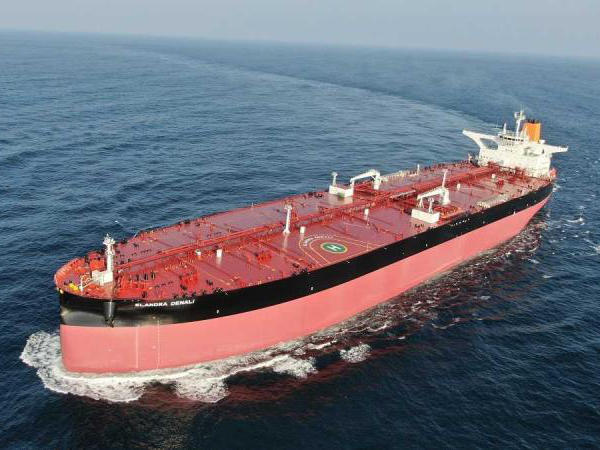What to Do With a Huge Jet Fuel Cargo When Planes Are Grounded
With airlines still grounding flights, the last thing Europe probably needs right now is a giant cargo of jet fuel. Yet, a supertanker hauling about 2 million barrels of it is on its way from Asia.
The fully laden Elandra Denali is set to arrive in Rotterdam on June 6, adding to the list of recent tanker shipments of the product, many of which are still anchored outside Europe’s ports. While the coronavirus pandemic has decimated the global market for aviation fuel, production and trading of it across the world’s oceans continues.

“In the world of trading, it’s always about where you can make the margin,” said Sandra Octavia, an oil products analyst at Energy Aspects Ltd. If the price in Europe is higher than in Asia—taking into account things like financing and freight costs—then, if it makes sense, you might ship a cargo, she said.
The aviation fuel market has been so badly hit that it’s now cheaper than diesel in Europe, when normally it’s more expensive. That begs the question of what will happen to the product aboard the Elandra Denali, a newly built vessel that loaded most of its jet fuel cargo in South Korea in early April. The tanker also took on additional fuel via a ship-to-ship transfer, some of which may not be jet, according to research firm Kpler.
One possibility is that the fuel will be stored and sold later at a profit. The cheapest way to do that is to find an empty tank on land, but it’s also possible to keep it on the ship for an extended period. This approach, known as floating storage, is expensive, but if the future prices of the product are high enough, it can still be profitable.
Another option is for the cargo to be blended into diesel-type fuel. Anyone taking this approach would have to pay close attention to the specifications of the different products, particularly sulfur content and flash point.
While the Elandra Denali is notable for its sheer size, it’s not alone in bringing jet to Europe. Tankers stacked with the fuel are gathered off the coast of the U.K. and Rotterdam. Some have been there for weeks, a possible indication that their owners have opted for floating storage. There is currently no onshore jet fuel storage for hire in Europe, according to Krien van Beek, a broker at ODIN-RVB Tank Storage Solutions.
Gloomy Outlook
Compared to some other oil products, the outlook for jet is far from rosy. Energy Aspects expects demand for the fuel to still be down by about 60% from 2019 levels next month, with a recovery not expected until mid-to-late next year.
The Paris-based International Energy Agency sees demand for jet and kerosene falling by 1.7 million barrels a day year-on-year each month between July and December, according to the organization’s latest monthly report. Meanwhile, demand for gasoline—a much bigger market—is set to drop by 550,000 barrels a day. The expected drop in diesel and gasoil is even smaller.
“Gasoline I can see recovery quite strongly and quickly, but not jet fuel,” said Steve Sawyer, director of refining at Facts Global Energy.
Similar Stories

Drewry’s World Container Index - 16 Jan
View ArticleMSC GRI - update scope: Import ISC/ME - Indian Subcontinent/Middle East to USA
Mediterranean Shipping Company has filed and will implement the following GRI - General Rate Increase effective February 15th, 2025, as below.
View ArticleDaphne Technology and Williams secure DOE grant to advance methane emission reduction technology
Daphne Technology, in partnership with Williams, has announced the award of a grant worth nearly $6M from the U.S. Department of Energy's (DOE) Methane Emissions Reduction Program (MERP).
View Article
Solar Prize Round 8 semifinalists & power up contest winners
View ArticleBiofuel can deliver significant GHG emissions reductions but future uptake could be hampered by supply, says DNV
According to DNV’s latest white paper “Biofuels in Shipping”, key biofuels like FAME and HVO have great potential for reducing greenhouse gas (GHG) emissions and supporting compliance with maritime regulations,…
View ArticleNor-Shipping adds finance, LNG and seabed minerals to “agenda setting” conference program for 2025
Nor-Shipping is enhancing its conference program for 2025 with a bold line-up of new events targeting evolving ocean business opportunities.
View ArticleGet the most up-to-date trending news!
SubscribeIndustry updates and weekly newsletter direct to your inbox!





